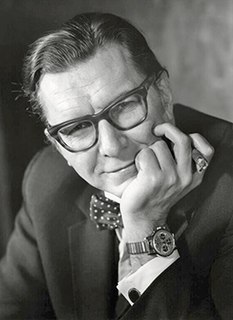A Quote by Pearl S. Buck
The typhoon came out of the sea first as a deep hollow roar. ... I was surrounded by the madness, the unreason, of uncontrolled, undisciplined energy. None of this made any sense. It was worse than useless - it was nature destroying its own creation - its own self. To create by the long process of growth and then to destroy by a fit of wild emotion - was this not madness, was this not unreason?
Related Quotes
And more than once in the course of time, the same theme reappears: among the mystics of the fifteenth century, it has become the motif of the soul as a skiff, abandoned on the infinite sea of desires, in the sterile field of cares and ignorance, among the mirages of knowledge, amid the unreason of the world - a craft at the mercy of the sea's great madness, unless it throws out a solid anchor, faith, or raises its spiritual sails so that the breath of God may bring it to port.
One's own free and unfettered volition, one's own caprice, however wild, one's own fancy, inflamed sometimes to the point of madness - that is the one best and greatest good, which is never taken into consideration because it cannot fit into any classification and the omission of which sends all systems and theories to the devil.
In this century the writer has carried on a conversation with madness. We might almost say of the twentieth-century writer that he aspires to madness. Some have made it, of course, and they hold special places in our regard. To a writer, madness is a final distillation of self, a final editing down. It's the drowning out of false voices.
The history of science should not be an instrument to defend any kind of social or philosophic theory; it should be used only for its own purpose, to illustrate impartially the working of reason against unreason, the gradual unfolding of truth, in all its forms, whether pleasant or unpleasant, useful of useless, welcome or unwelcome.
Madness, provided it comes as the gift of heaven, is the channel by which we receive the greatest blessings... the men of old who gave things their names saw no disgrace or reproach in madness; otherwise they would not have connected it with the name of the noblest of arts, the art of discerning the future, and called it the manic art... So, according to the evidence provided by our ancestors, madness is a nobler thing than sober sense... madness comes from God, whereas sober sense is merely human.
There exists a powerful energizing force in the spiritual life principle. All energy began with the Creator, who infused it not only in all natural processes, but also into that higher form of nature called human nature. The more closely, then, that a person identifies with the Creator, the more surely that person will experience within his or her own nature the process of re-creation which operates in all creation.





































